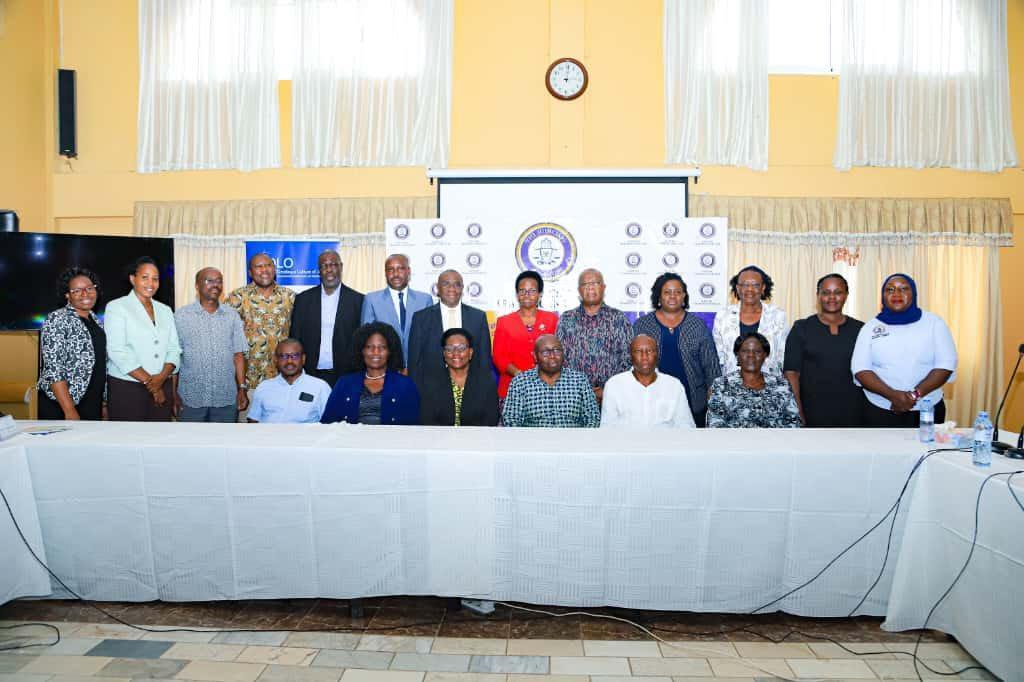Africa-Press – Uganda. The Deputy Chief Justice, Justice Dr. Flavian Zeija, has called on Justices of the Court of Appeal to uphold collegiality, embrace technology, and promote Alternative Dispute Resolution (ADR) as essential pillars for improving access to justice and strengthening efficiency within Uganda’s Judiciary.
Dr. Zeija’s remarks were delivered by Justice Geoffrey Kiryabirwe, who represented him at the closing ceremony of a five-day induction training for newly appointed Justices of the Court of Appeal, held at the Imperial Golf View Hotel in Entebbe.
The training, organised by the Judicial Training Institute (JTI) in partnership with the International Development Law Organization (IDLO) and the Uganda Revenue Authority (URA), sought to orient the Justices on the Court’s mandate, values, and operational culture. The event concluded with the presentation of Certificates of Completion and Instruments of Appointment as Court-Annex Mediators.
In his message, Dr. Zeija commended the Chief Justice, Justice Alfonse Chigamoy Owiny-Dollo, for his continued support towards professional development in the Judiciary. He also lauded the JTI Governing Council and its Executive Director, Justice Prof. Andrew Khaukha, for organizing what he described as a timely and transformative programme.
“We have been called to serve at a level where our work will shape jurisprudence and define the course of justice in our country,” Dr. Zeija said. “As appellate Justices, our responsibility goes beyond error correction. We are custodians of precedent, interpreters of the Constitution, and guardians of the rule of law.”
He emphasised the importance of ADR in decongesting courts and promoting reconciliation among litigants. “ADR enhances the delivery of justice by offering a more participatory, cost-effective, and restorative approach to dispute resolution,” he noted, urging Justices to adopt a ‘Judicial Officer Mediator Mindset’ grounded in empathy, impartiality, and creativity.
Dr. Zeija also highlighted the Judiciary’s ongoing digital transformation through the Electronic Court Case Management Information System (ECCMIS), virtual hearings, and e-filing. He said these innovations are vital to improving the speed, transparency, and integrity of the judicial process.
“A modern Court of Appeal must be both intellectually and technologically proficient,” he said. “Technology enhances not only the efficiency of our work but also public confidence in the justice system.”
On the issue of collegiality, the Deputy Chief Justice described it as a cornerstone of appellate adjudication, calling for humility and mutual respect among Justices.
“Collegiality requires the willingness to listen, to differ without hostility, and to work together harmoniously. When we uphold collegiality, we enrich our jurisprudence and strengthen the institutional integrity of the Judiciary,” he emphasized.
Dr. Zeija reaffirmed the Judiciary’s commitment to revising the Court of Appeal and Constitutional Court Rules based on lessons drawn from the induction. He reminded the Justices that the processes leading to judicial decisions are as important as the outcomes themselves.
Justice Kiryabirwe, speaking on behalf of the Deputy Chief Justice,qq officially declared the induction closed, marking the end of a week of learning, reflection, and engagement dedicated to enhancing appellate adjudication and judicial excellence in Uganda.
For More News And Analysis About Uganda Follow Africa-Press






